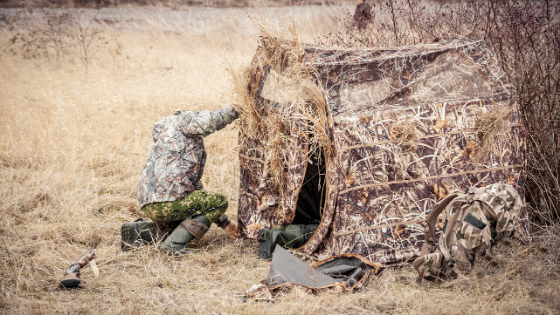You may have wondered what all the talk is about backpack hunting and even thought about trying your hand at it. But, you may have no clue what you need. Still, the thought of hiking miles in deep woods, just nature as your companion and with everything you need on your back seems enticing. We’ll discuss just what’s involved with backpack hunting so that you can make an informed decision.
Supplies to Bring
Here are the four main gear items you’ll need for backpack hunting:
- Tent or shelter
- Sleeping pad
- Sleeping bag or quilt
- Backpack (a good-quality, large one)
Backpack
Choosing a good-quality backpack is obviously the meat of your backcountry system. Since it hauls everything you’re going to need in it, it’s imperative to get one that you get a backpack that is both capable of hauling heavy loads and, most importantly, fits you. If you’re not sure, you can check out plenty of videos about backpack and backpack hunting. To try some on yourself, go to a sporting goods store. If you don’t have one in reach, then reach out to people on forums with expertise in this area. Also, if you contact the companies that manufacture the backpacks, they will most likely help you out.
Now, concerning how big the backpack is, a good rule of thumb is 1,000 cubic inches per day. But, you don’t need two different backpacks for a weekend trip versus a longer one. Choose a size that reflects the duration of most of your trips. For a more extended hunt, it’s a good idea to select one that carries about 5,000 cubic inches. This is just a guideline, so see what’s best for you. Everyone’s setup is different, and there are plenty of experienced backpack hunters who can get seven days out of a 5,000 to 6,000 cubic inch pack.
Shelter or Tent
Whether you get a tent or have some other shelter is entirely up to you and where you’ll be hunting. If you live somewhere where dangers are surrounding you, you may want a lightweight enclosed space a tent offers. If you’re in a place where that’s not so much an issue, consider a floorless shelter or running a bivy sack. Bivys are a lightweight, simple option for hunters who are only looking for a place to sleep and nothing more. Now, if it starts raining, you’re stuck in it until it stops—that is unless you want your sleeping bag to get wet.
Quilt or Sleeping Bag
Again, whatever you use to put over you is mostly your own preference, but it’s important to think about the weather. If you’re going to be in freezing or sub-zero conditions, the best thing to get is a mummy bag, since they insulate your body heat. These types of sleeping bags are more comfortable but may weigh more and take additional space in your pack.
An alternative is a quilt, which is designed with a footbox (similar to a traditional mummy-style sleeping bag) This helps reduce the weight since it doesn’t contain the bottom portion of the bag.
Last but not least, don’t forget food, water, clothing, and of course, a first-aid kit.
Call R&K Hunting
We have trained and experienced hunting guides that offer the best backpack hunting experience for your exciting adventure. Contact R&K Hunting to book your hunting trip with us and get ready for backpack hunting.

